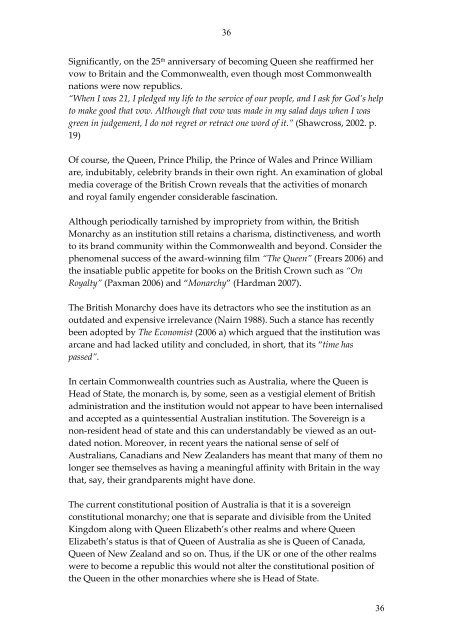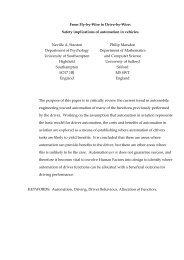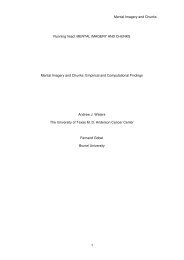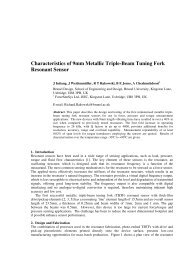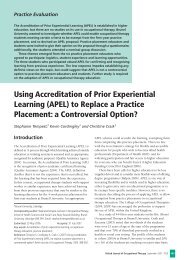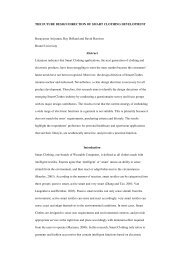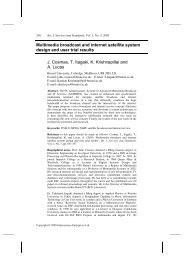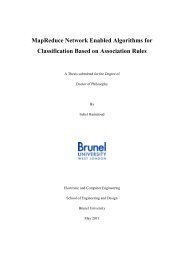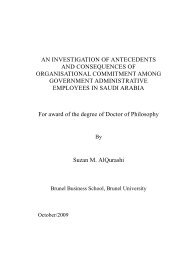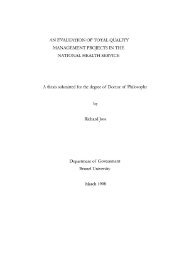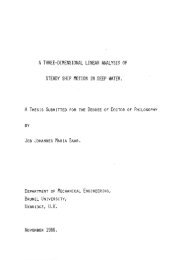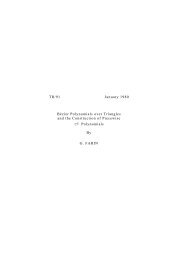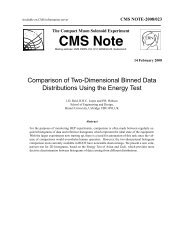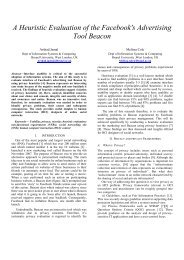insights from the british monarchy - BURA - Brunel University
insights from the british monarchy - BURA - Brunel University
insights from the british monarchy - BURA - Brunel University
You also want an ePaper? Increase the reach of your titles
YUMPU automatically turns print PDFs into web optimized ePapers that Google loves.
36<br />
Significantly, on <strong>the</strong> 25 th anniversary of becoming Queen she reaffirmed her<br />
vow to Britain and <strong>the</strong> Commonwealth, even though most Commonwealth<br />
nations were now republics.<br />
‚When I was 21, I pledged my life to <strong>the</strong> service of our people, and I ask for God’s help<br />
to make good that vow. Although that vow was made in my salad days when I was<br />
green in judgement, I do not regret or retract one word of it.‛ (Shawcross, 2002. p.<br />
19)<br />
Of course, <strong>the</strong> Queen, Prince Philip, <strong>the</strong> Prince of Wales and Prince William<br />
are, indubitably, celebrity brands in <strong>the</strong>ir own right. An examination of global<br />
media coverage of <strong>the</strong> British Crown reveals that <strong>the</strong> activities of monarch<br />
and royal family engender considerable fascination.<br />
Although periodically tarnished by impropriety <strong>from</strong> within, <strong>the</strong> British<br />
Monarchy as an institution still retains a charisma, distinctiveness, and worth<br />
to its brand community within <strong>the</strong> Commonwealth and beyond. Consider <strong>the</strong><br />
phenomenal success of <strong>the</strong> award-winning film ‚The Queen‛ (Frears 2006) and<br />
<strong>the</strong> insatiable public appetite for books on <strong>the</strong> British Crown such as ‚On<br />
Royalty‛ (Paxman 2006) and ‚Monarchy‛ (Hardman 2007).<br />
The British Monarchy does have its detractors who see <strong>the</strong> institution as an<br />
outdated and expensive irrelevance (Nairn 1988). Such a stance has recently<br />
been adopted by The Economist (2006 a) which argued that <strong>the</strong> institution was<br />
arcane and had lacked utility and concluded, in short, that its ‚time has<br />
passed‛.<br />
In certain Commonwealth countries such as Australia, where <strong>the</strong> Queen is<br />
Head of State, <strong>the</strong> monarch is, by some, seen as a vestigial element of British<br />
administration and <strong>the</strong> institution would not appear to have been internalised<br />
and accepted as a quintessential Australian institution. The Sovereign is a<br />
non-resident head of state and this can understandably be viewed as an outdated<br />
notion. Moreover, in recent years <strong>the</strong> national sense of self of<br />
Australians, Canadians and New Zealanders has meant that many of <strong>the</strong>m no<br />
longer see <strong>the</strong>mselves as having a meaningful affinity with Britain in <strong>the</strong> way<br />
that, say, <strong>the</strong>ir grandparents might have done.<br />
The current constitutional position of Australia is that it is a sovereign<br />
constitutional <strong>monarchy</strong>; one that is separate and divisible <strong>from</strong> <strong>the</strong> United<br />
Kingdom along with Queen Elizabeth’s o<strong>the</strong>r realms and where Queen<br />
Elizabeth’s status is that of Queen of Australia as she is Queen of Canada,<br />
Queen of New Zealand and so on. Thus, if <strong>the</strong> UK or one of <strong>the</strong> o<strong>the</strong>r realms<br />
were to become a republic this would not alter <strong>the</strong> constitutional position of<br />
<strong>the</strong> Queen in <strong>the</strong> o<strong>the</strong>r monarchies where she is Head of State.<br />
36


